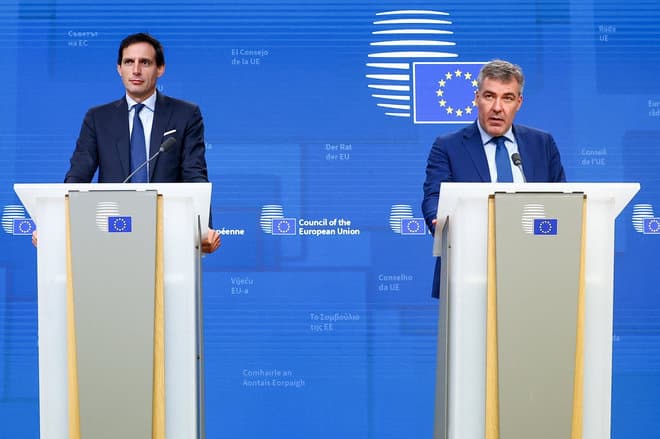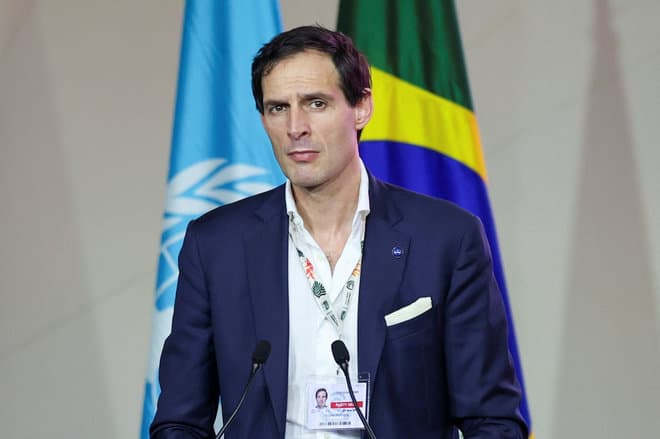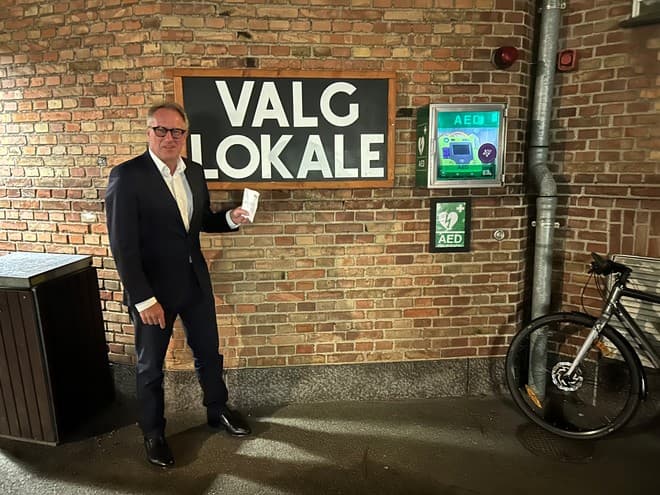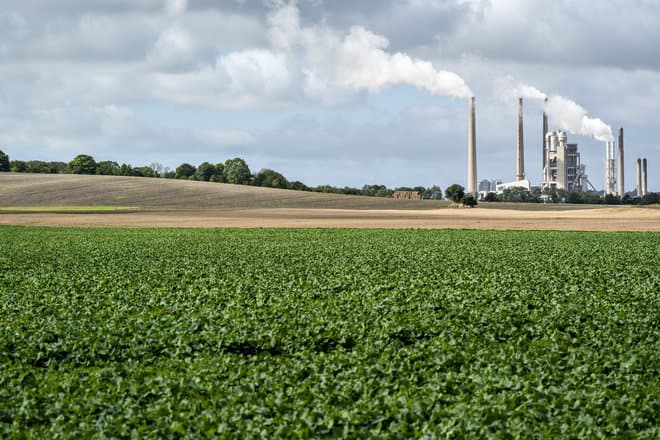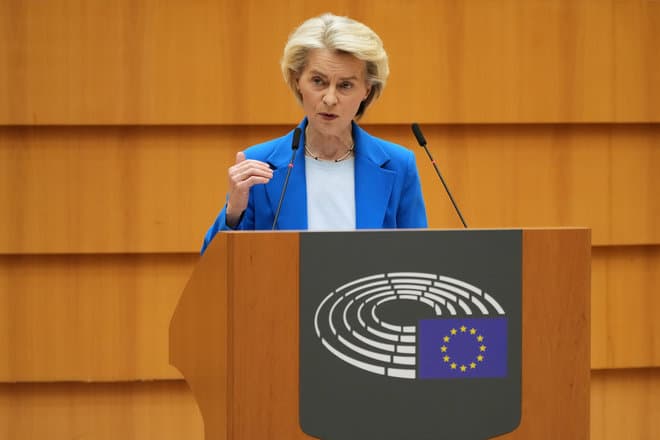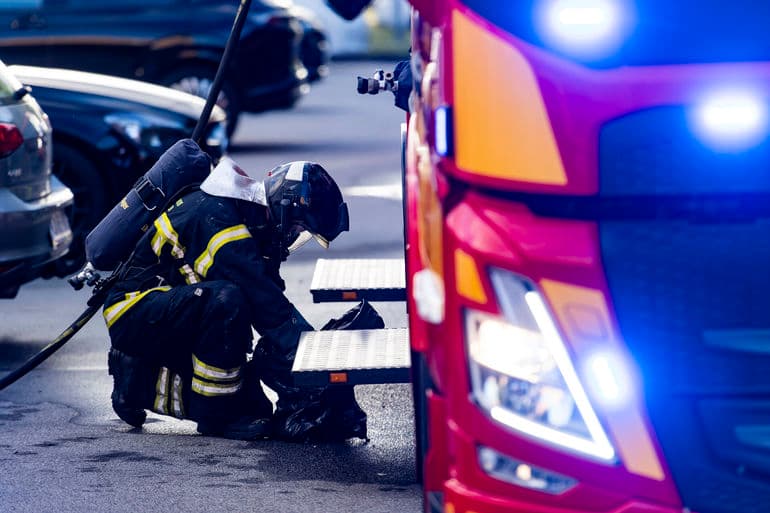
Society is evolving rapidly – but emergency preparedness is not.
- We have neglected to let emergency preparedness evolve with society. This is exactly what the report points to, says Bjarne Nigaard, head of secretariat at Danish Emergency Services, to DK Nyt about the report “Society development and its significance for municipal emergency services”, which was published at the end of October.
The report is described as a “call from the front line” and points to structural and prioritization problems that mean that the municipalities' emergency services do not have the necessary resources and competencies to handle today's challenges.
Bjarne Nigaard uses a simple image to explain the core of the problem:
- Emergency services are Denmark's joint disaster insurance. When something hits, the insurance must cover it – and that requires us to continuously adjust it as the risks change. It's a bit like forgetting to update your home insurance.
DKK 1.3 billion backlog
In connection with the emergency response agreement at the end of 2024, Danish Emergency Response drew attention to the fact that the municipal rescue services have fallen behind.
According to the organization, there is a financial backlog of DKK 1.3 billion.
- This is the backlog that we assess that the overall Danish rescue service has if we are to reach a level where we can keep up with social developments, explains Bjarne Nigaard.
Behind the billions are three key challenges:
1. Lack of knowledge and training – firefighters need longer and more comprehensive training courses.
2. Lack of full-time firefighters – especially in those parts of the country where emergency services currently rely on part-time workers.
3. Outdated equipment – the equipment is not geared to handle new and more complex tasks.
Training on the way
With the emergency response agreement, something is happening in the area.
"A broad majority of the Folketing agrees that vocational training can contribute to raising the level of competence and benefit recruitment and retention in the emergency response. Therefore, preparations have been initiated to establish vocational fire and rescue training with a view to taking a position during the agreement period," writes Minister of Public Safety and Emergency Response Torsten Schack Pedersen (V) in an email to DK Nyt.
He adds that it will be natural for the expert panel, which has been set up to look at the organisation of the emergency response, to also look more closely at the training and competence needs.
Although longer and more comprehensive training for firefighters is on the way, Bjarne Nigaard believes that there will still be shortcomings in skills.
One of today's challenges is the green transition, which means, among other things, that more solar parks and Power-to-X plants are being built – often in areas of the country where emergency services are more dependent on part-time workers.
But part-time firefighters have difficulty developing their skills through daily exercises that full-time employees do continuously when they are not on duty. And this problem will not be solved by training.
- These people have another full-time job. They cannot take a two and a half year training course on the side. It is a structural problem – it is the way we have structured our emergency services in Denmark, says Bjarne Nigaard.
The classic problem
The green transition is not the only challenge. Buildings are becoming taller and more complex, climate events such as storm surges and floods are becoming more frequent – and at the same time Denmark is in the middle of a hybrid war, which places new demands on robustness and coordination.
But even when there is political recognition of the problems and a political will for change in the municipalities, it is not enough. This requires financial room for manoeuvre.
- We end up in the same situation as in many other municipal areas, where the municipalities say, “we need more money from the state”, and the state replies, “that is a municipal task”, explains Bjarne Nigaard:
- It is the classic problem – and it also affects emergency preparedness.
Immediately, it does not appear that more money is in sight. In an email to DK Nyt, Torsten Schack Pedersen writes that "with the agreement on the municipalities' finances for 2025-26, we are significantly raising the municipalities' service framework, so that individual municipalities, among other things, have a better opportunity to prioritize rescue preparedness."
However, the minister agrees that Denmark must have "a strong preparedness throughout the country - and across municipalities and the state."
"Therefore, I have set up an expert panel that will take a closer look at the organization of the rescue preparedness and provide input on the interaction between the state and municipal rescue preparedness in order to identify and support future needs in light of the security policy situation, climate change, green transition and civil protection, etc.," he writes.
He adds that with the Agreement on the Preparedness Area 2025-2026, a broad majority agreed to cover acute needs in the state rescue preparedness, so that, among other things, "will improve and be able to support municipal rescue operations to an even greater extent when major events such as storm surges, floods and other crises hit us."
Text, graphics, images, sound, and other content on this website are protected under copyright law. DK Medier reserves all rights to the content, including the right to exploit the content for the purpose of text and data mining, cf. Section 11b of the Copyright Act and Article 4 of the DSM Directive.
Customers with IP agreements/major customer agreements may only share Danish Offshore Industry articles internally for the purpose of handling specific cases. Sharing in connection with specific cases refers to journaling, archiving, or similar uses.
Customers with a personal subscription/login may not share Danish Offshore Industry articles with individuals who do not themselves have a personal subscription to Danish Offshore Industry.
Any deviation from the above requires written consent from DK Medier.











